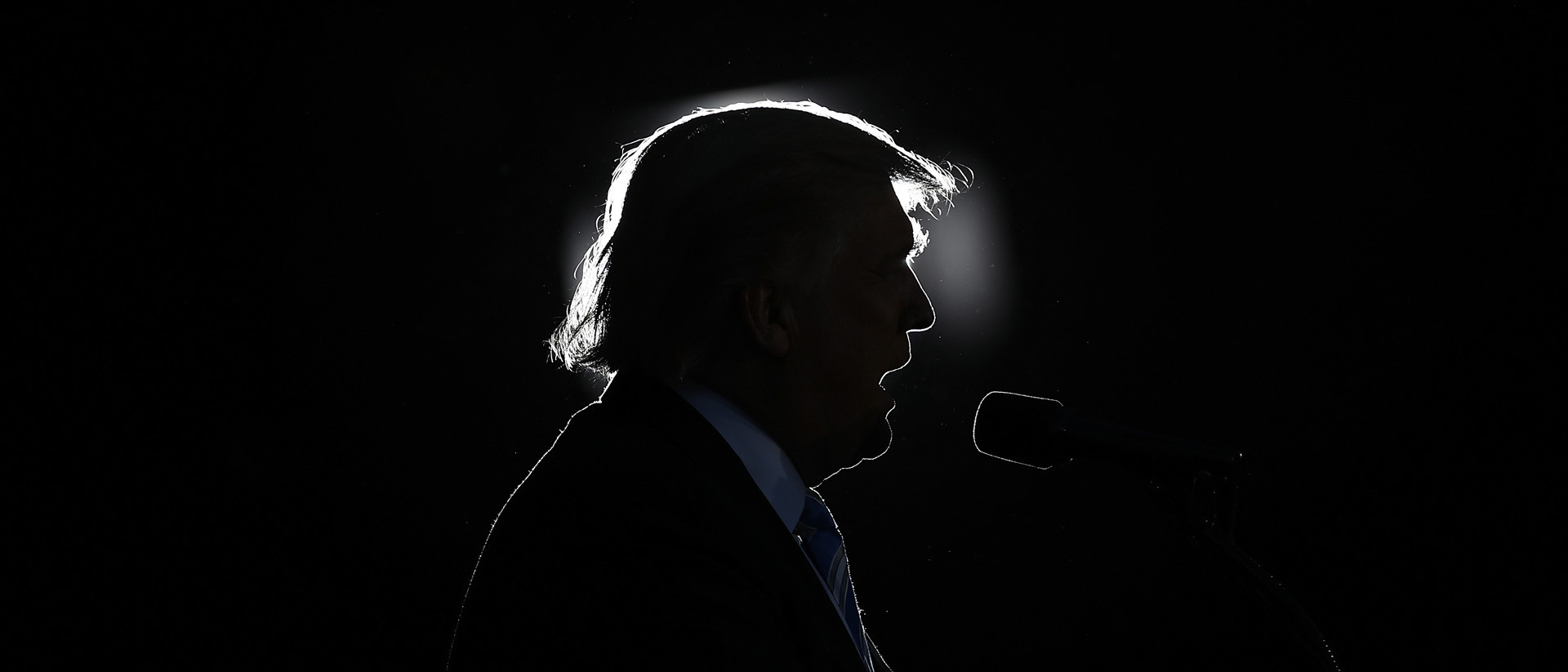On July 29, 2016, Donald Trump addressed a rally in Denver, Colorado:
“Look, we have the greatest business people in the world and we don’t use them. We use political hacks. Some of these business people are not nice people. Who cares? You care? I don’t think so. Some of these business people are vicious, horrible, miserable human beings. Who cares? Who cares?” he repeated, muttering.
Then Trump began to scream.
“Some of these people, they don’t sleep at night! They twist, and turn, and sweat!” he cried, twisting his hand furiously, “and their mattress is soaking wet! Because they’re thinking all night about victory the next day against some poor person that doesn’t have a chance.”
His eyes flashing with panic, Trump kept going.
“And these people – unfortunately, I know them all,” he laughed bitterly. “These people would love to represent us against China, against Japan, against all of these countries…These people. They feel crazy! They feel angry! They cannot believe the deals that are made. We will do things we have never done before.”
The speech was a revealing moment in what was then thought of as the worst week of Trump’s campaign (until October, when the “grab them by the pussy” video emerged). The Democratic National Convention had just concluded, causing Hillary Clinton’s approval ratings to rise and Trump’s self-control to cede. Trump spent that week engaging in aggressive and erratic behavior, including attacking Khizr and Ghazala Khan, parents of slain veteran Humayun Khan; feuding with a baby at a different rally; lying about a “secret video” from Iran; and most notably, on July 27, asking Russia to hack Hillary Clinton’s emails.
“I will tell you this, Russia: If you’re listening, I hope you’re able to find the 30,000 emails that are missing,” Trump said at a press conference. “I think you will probably be rewarded mightily by our press.”
That was the last press conference Trump ever had. Which is a shame, because it would be nice to know, once and for all, who “these people” are.
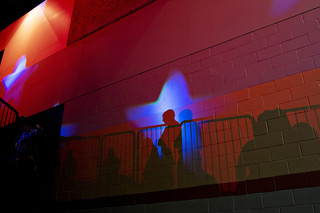
Photos by Daniel Acker / Bloomberg
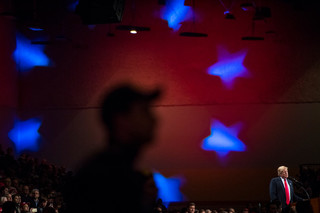
Who are these people?
Who are the “vicious, horrible, miserable human beings?” Who are these people, awake in the middle of the night – much as Trump is when disturbed by something, tweeting away at three in the morning – because their conscience plagues them so? Who is that poor person that doesn’t have a chance, and why does Trump know that they have none? Who are “these people” – these crazy, angry people that even Trump seems to regret knowing – and why would he want them in control of the United States of America?
Those are the questions you ask yourself, months later, when you try to figure out if your government has been overtaken by a foreign power.
Who are “these people” and why would he want them in control of the United States of America?
Those are the questions you ask knowing your president-elect’s campaign was run by operatives like Paul Manafort, who has long-standing ties to Putin and is under FBI investigation for corruption in Ukraine; and aided by Wikileaks, which has been accused of getting their information from the very Russian hackers whose Trump’s services requested.
Those are the questions you ask when your president-elect’s name allegedly appears in an FBI file as part of a cultivation scheme dating back to 2011; when he is accused of being on a kompromat tape (a Russian blackmail tape); when his campaign was backed by a Russian troll farm; and when he is praised as a leader by Russian state media as early as 2014, long before he proclaimed his candidacy. Trump gained this praise after he gave a Fox News interview where he stated the US should give Russia a pass on their misdeeds because: “[The US is] going to win something important later on, and they won’t be opposed to what we’re doing.”
I wonder to what he was referring.
Because Trump’s cabinet is full of kleptocrats
Trump’s cabinet is a collection of pro-oligarch warmongers. There’s Secretary of State Rex Tillerson, an ExxonMobil executive and a close ally of Putin who was awarded Russia’s Order of Friendship in 2013 and whose $500 billion Arctic oil contract between ExxonMobil, the Kremlin, and Russia’s Rosneft oil company was suspended once Russia invaded Ukraine in 2014.
There’s National Security Advisor Michael Flynn, who gave a paid talk at a gala dinner with state propaganda network RT in 2015, and who is known for his vicious temper and penchant for conspiracy theories, calling on Hillary Clinton to be imprisoned and calling President Obama a “liar” who tacitly supports ISIS. And there’s Manafort, who is said to be “back”, guiding the president-elect. Trump’s team is like a matryoshka doll of kleptocrats, one worse than the next.
Trump’s team is like a matryoshka doll of kleptocrats, one worse than the next
Trump’s cabinet also features a variety of individuals whose role seems to be destroying the institutions they each lead. The Treasury Secretary ran a bank known as a “foreclosure machine”; the Labor Secretary wants automation instead of workers; the Attorney General is a notorious racist who has attacked voting rights, and so on.
They fit neatly into Trump’s vision for the US, expressed in the same Fox News interview where he defended Putin and spoke of a future Russia-approved win, that economic collapse and riots are how America is made great again. They are excellent picks if your goal is to create a kleptocracy in which privatization of public resources will be used to benefit the wealth of the president, his family, and his cronies.
Photo by Justin Merriman / Getty Images
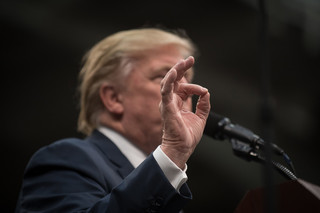
Photo by Robyn Beck / AFP
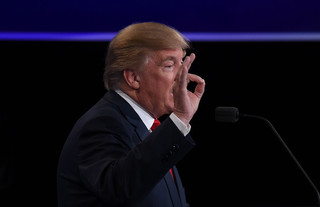
But whose kleptocracy is it, really?
That’s the new American Dream when you live in Trumpland: to be assured that the massive shakedown of the republic is Made in the USA. As for the national values of life, liberty, and the pursuit of happiness – we Americans will still fight for that, but it would be nice to know under whose auspices. To get an answer to the question of who “these people” are.
Some US officials have tried, in vain, to investigate that for months. In August, Senate Minority Leader Harry Reid asked the FBI to investigate “the threat of the Russian government tampering in our presidential election” to the point where they may “falsify official election results.” Reid’s request followed a proclamation by Michael Morrell, the former Acting Central Intelligence Agency director, that Trump was an “unwitting agent” of the Kremlin.
The FBI responded not by revealing information about Trump’s Russia connections to the public, as Reid had requested, but by creating a fabricated scandal about Clinton, falsely claiming that an investigation into her emails had been launched and led to new revelations, which it had not. In response to the FBI’s behavior, Reid accused director James Comey of violating the Hatch Act and noted that the FBI “possesses explosive information about close ties and coordination between Donald Trump, his top advisors, and the Russian government – a foreign interest openly hostile to the United States, which Trump praises at every opportunity.”
Reid noted yet again that the public has the right to know that information. But despite his pleas, few in our government or our press made the effort to obtain and share it.
On November 6, the New York Times public editor bemoaned the lack of coverage on Russian cyberespionage, saying that the story should have been “top priority.” The editor noted that even the Times’ own piece reporting that Russians may be planning to falsify voting results on state databases was hidden deep in the print edition and read by few.
Instead, voters went to the polls with Clinton’s fabricated email scandal on their minds, while an actual scandal – possibly the biggest intelligence coup in US history – went largely undiscussed.
Morrell called Russian interference “the political equivalent of 9/11”
While scholars of authoritarianism like Timothy Snyder warned that Russian fascists were interfering in the election and cybersecurity experts like J. Alex Halderman declared that our voting machines were vulnerable to hackers, the public remained largely uninformed due to a disinterested media. Even Clinton’s repeated observation that over 17 intelligence agencies confirmed that the Democratic National Committee had been hacked by Russia (resulting in a leak of emails through Wikileaks) received limited media attention.
Though the press has been slow to respond, political apathy to foreign interference no longer remains. A grassroots call for a recount and audit to rule out foreign interference, later embraced by Green Party candidate Jill Stein, emerged online soon after the election. A small group of Democratic and Republican representatives began repeatedly demanding a congressional investigation.
On November 16, the director of the National Security Agency proclaimed that the election had been hacked. On December 9, President Obama ordered a “full review” of evidence, which both representatives and citizens have asked to be declassified. On December 12, the CIA’s Morrell compared Russian interference to “the political equivalent of 9/11,” while the Clinton campaign backed a call for an intelligence briefing before the Electoral College votes on December 19. On December 14, top US intelligence officials declared that there was nearly incontrovertible evidence that Putin himself was involved in the election hack.
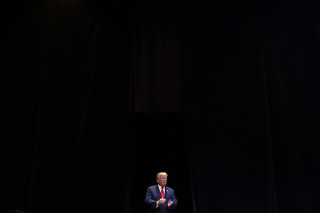
Photos by Chip Somodevilla / Getty Images
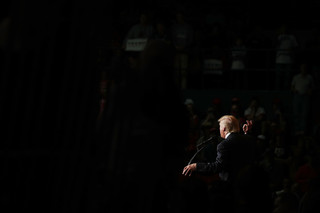
These people should be worried
It is a frightening time to be an American. I do not know what my country will look like by the time you read this article, both due to how fast things are changing and the unprecedented nature of this crisis. It feels less like the aftermath of an election than a fundamental shift in our reality – a feeling like the ground is breaking beneath our feet and swallowing us up.
It feels like Americans live permanently on the precipice – perhaps of foreign war, or of civil war, or of the loss of our sovereignty. That we do not know just what we live on the precipice of is the most unnerving thing of all. Every day feels like a countdown to the end to a way of life we may be leaving behind, the giving way of our dead dreams to an unprecedented nightmare.
That is why I keep watching that video of Trump talking about “these people.” These “vicious, horrible, miserable people,” tyrannizing the poor fools who have no chance. Trump’s eyes are filled with horror as he seems to argue with himself, talking of sleepless nights, trying to convince himself that no one will care about of the immense power men devoid of conscience will wield over this country.
He has a look I see on a lot of faces these days as people take in the news: the raw panic from knowing both too little and too much.
Was Trump’s statement a prophecy? A confession? Hard to say. That’s the thing about “these people” – they do not like others asking questions. But the American people are looking for answers these days, and it is unlikely they will stop until they find them. “These people” should prepare for more sleepless nights.
More from De Correspondent:
 We’re heading into dark times. This is how to be your own light in the Age of Trump
Having studied authoritarian states for over a decade, I would never exaggerate the severity of the threat we now face. But an American kleptocracy is exactly where president-elect Trump and his backers are taking us. That’s why I have a favor to ask you, my fellow Americans.
We’re heading into dark times. This is how to be your own light in the Age of Trump
Having studied authoritarian states for over a decade, I would never exaggerate the severity of the threat we now face. But an American kleptocracy is exactly where president-elect Trump and his backers are taking us. That’s why I have a favor to ask you, my fellow Americans.
 Our fate was sealed long before November 8 (and not because the election’s rigged)
I do not know what kind of America I will wake up to November 9. But I know that the future of America does not hinge on Election Day. What happens to the US will be the cumulative effect of a Trump campaign that has mainstreamed bigotry and is now mainstreaming – or at least severely playing down – white supremacist violence.
Our fate was sealed long before November 8 (and not because the election’s rigged)
I do not know what kind of America I will wake up to November 9. But I know that the future of America does not hinge on Election Day. What happens to the US will be the cumulative effect of a Trump campaign that has mainstreamed bigotry and is now mainstreaming – or at least severely playing down – white supremacist violence.
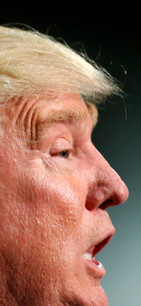 To Donald Trump, we are all bit players in a fantasy America starring Donald Trump
In Trump’s worldview, there are no middle or upper-class black citizens, only a horde of jobless, uneducated Americans fighting for survival amid the urban blight. His latest comments are the clearest evidence yet that Trump has no respect for the actual inhabitants of actual places. How can a man who’s been traveling the country all year still know so little about its people?
To Donald Trump, we are all bit players in a fantasy America starring Donald Trump
In Trump’s worldview, there are no middle or upper-class black citizens, only a horde of jobless, uneducated Americans fighting for survival amid the urban blight. His latest comments are the clearest evidence yet that Trump has no respect for the actual inhabitants of actual places. How can a man who’s been traveling the country all year still know so little about its people?



